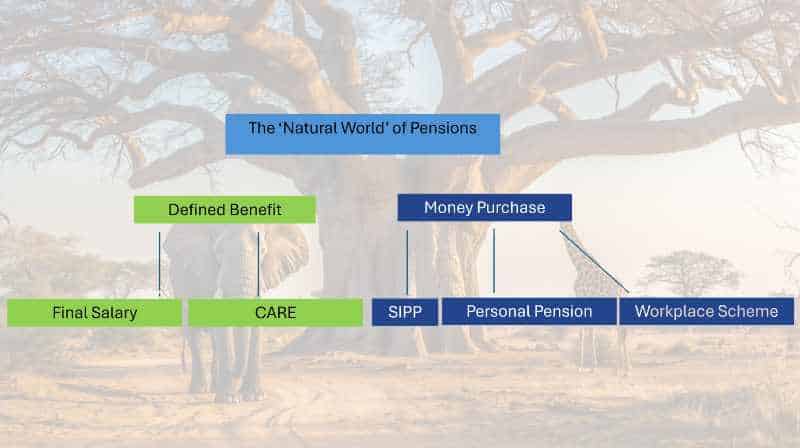
In this video, I explain my belief that an inactive mind in retirement is a cause of mental and physical issues. I state it is only my belief, but it turns out that there is medical evidence to back it up.
As we approach or live in retirement, our attitude towards ageing can significantly impact our physical health and overall well-being. Supported by numerous studies, including this one from Cambridge University, the concept that maintaining a positive outlook as we grow older can lead to better health outcomes, increased longevity, and a more satisfying life is becoming increasingly accepted. Drawing on insights from the book The Expectation Effect by David Robson and other sources, this article explores the profound influence that a positive mindset can have on our health during our golden years.
Reduced Risk of Age-Related Diseases
A wealth of research highlights that individuals who hold positive views about ageing are less likely to suffer from age-related diseases such as hearing loss, frailty, and Alzheimer’s disease. For instance, a study published in PubMed demonstrates a strong correlation between positive perceptions of ageing and better physical health outcomes. This connection likely stems from lower levels of stress and a more proactive approach to health maintenance. Essentially, when individuals feel good about ageing, they are more likely to engage in activities that promote their well-being and stave off the deterioration that often accompanies older age.
Stronger Immune Function
A positive outlook doesn’t just help us handle stress better; it directly enhances our body’s ability to fend off infections. Optimism and a hopeful disposition have been scientifically associated with stronger immune responses. According to WebMD, individuals with a cheerful outlook experience greater resistance to common illnesses like the cold and exhibit reduced levels of stress-related inflammation. This beneficial effect makes it easier for the body to protect and heal itself, underscoring the physical benefits of positivity.
Better Management of Chronic Conditions
Living with chronic conditions is a reality for many as they age, but a positive attitude can significantly affect how one manages such health challenges. According to studies cited by WebMD, individuals with a positive mindset tend to experience lower blood pressure and improved pain tolerance. These findings suggest that a cheerful outlook plays a crucial role in effective disease management and coping strategies. By adopting a positive mental approach, retirees can better manage their symptoms and enjoy a higher quality of life despite their chronic conditions.
Longer Lifespan
The impact of a positive mindset extends even to longevity. Research indicates a notable correlation between positive attitudes toward ageing and a longer lifespan. This relationship may be influenced by an increased sense of purpose and ongoing engagement in life’s activities, both of which are prevalent in those who maintain an optimistic view towards their older years. Optimistic individuals often have a stronger will to live, propelled by the joys and engagements of daily life, which can significantly extend their lifespans.
Healthier Behaviours
Positive thinking motivates healthier lifestyle choices. Optimistic people are more likely to engage in physical activity, eat well, and seek preventative care, all of which contribute significantly to physical health. These healthier behaviours are less about the fear of illness and more about the enjoyment of life, further reinforcing the benefits of a positive attitude. As discussed in a Frontier District publication, this perspective transforms routine health maintenance into enjoyable activities that offer both pleasure and health benefits.
The Science Behind the Benefits
The benefits of positivity are rooted in both psychology and physiology. Neurologically, positive thinking stimulates the release of endorphins and other neurochemicals that promote well-being. Psychologically, it enhances resilience, reducing the psychological impact of the inevitable challenges that come with ageing. Additionally, the concept from The Expectation Effect suggests that our expectations can alter our bodily states. If we expect to age healthily and remain active, our bodies can align more closely with these expectations, turning our positive attitudes into a self-fulfilling prophecy.
Cultivating Positivity
So, how can retirees cultivate a positive mindset? Effective strategies include:
- Mindfulness and Meditation: Practices like yoga and meditation can improve mental health, fostering a more positive outlook.
- Social Connections: Engaging with friends, family, and community enhances emotional support and promotes positivity.
- Lifelong Learning: Pursuing new hobbies and educational opportunities keeps the mind active and the spirit engaged.
- Volunteering: Giving back to the community provides purpose and a sense of fulfilment.
- Physical Activity: Regular exercise not only boosts physical health but also improves mood and mental health.
The link between a positive mindset and physical health as we age is both clear and compelling. By choosing to view ageing as an opportunity for continued growth and satisfaction, retirees can enjoy not only longer but healthier and happier lives. This approach to ageing is an empowering reminder that our attitudes can profoundly impact our health outcomes. Embracing positivity isn’t just beneficial; it’s transformative, providing a foundation for a thriving, vibrant life in our later years.
Photo by Diana Parkhouse on Unsplash






